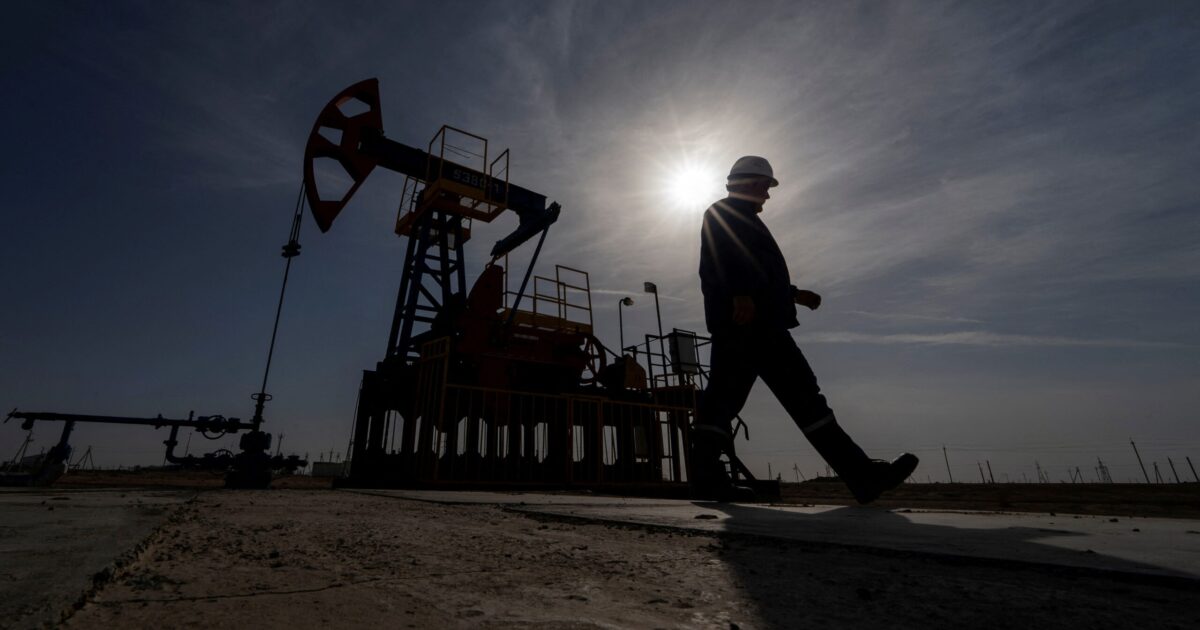Consequences for her Greek economy may have further upward movement of oilas recorded in the last 24 hours due to Western sanctions on Russian crude.
Oil prices have “jumped” about 9% since last week, imposing additional costs on the Greek economy, in transport, industry and agricultural production. But the main thing is that any upward movement of Brent above 65 dollars opens the possibility of a deviation from the assumption of 64 dollars that has been used in the 2026 draft budget, with direct effects on the path of inflation, the growth rate and the current account balance.
Oil is currently hovering around $66 per barrel and it remains to be seen whether the price will consolidate higher in the coming quarters.
The average price of unleaded oil is on the rise and petrol stations have already seen increases of a few cents per liter due to international turmoil following Western sanctions on Russian oil groups that have squeezed supply and triggered a weekly jump in international prices. Despite estimates that the phenomenon will be temporary, a prolonged increase will have wider effects.
On the one hand, it will bring an increase in the price of motor and heating fuels (on the “threshold” of winter) and a burden through transport costs in logistics, coastal shipping, road transport and supply chains, but also a worsening of inflationary expectations.
The budget perspective
A persistent increase puts obstacles in the execution of the budget as well. On the inflation side, a prolonged average price above $64 will push the index higher than forecast making it difficult to unwind. On the growth side, higher energy spending will squeeze consumption, especially in the lower income brackets, and raise costs for fuel-intensive industries. On the current account, historically increased energy prices weigh on the trade balance, even if exports of refined products provide a partial offset.
Therefore in a scenario of price stabilization at 60 – 68 dollars, the budget remains within targets, with marginal deviations and a limited impact on growth.
In a more scenario, an average of $70 – $75 for 1-2 quarters could bring in additional energy costs of millions each month with a mild negative effect on consumption and a small burden on the balance sheet, shaping inflation higher and requiring an update of estimates.
In an even more unfavorable scenario, where increases in oil prices last and “climb” to $80 – $85 with turbulence in the euro/dollar exchange rate, the effects become horizontal, with increases in transport and food, a more noticeable decline in real disposable income, etc. In this environment, revisions to inflation and balance are taken for granted, while the growth rate will be pushed harder than predicted.
It should be noted that according to previous IMF reports, each 10% rise in the price of oil tends to subtract about 0.15% from global growth in the next year and add about 0.4% to inflation. For Greece, which remains a net energy importer partially offset by refined product exports, the impact on the growth rate is conservatively estimated at −0.1 to −0.2% per +10% in Brent, with the range depending on the duration of the rally, the EUR/USD exchange rate and refining margins. So the average scenario for 2026 with an oil price of 70-75 dollars per barrel (versus an assumption of 64) “cuts” 0.1-0.3% from growth and marginally pushes inflation upwards, especially if the services core remains high.
